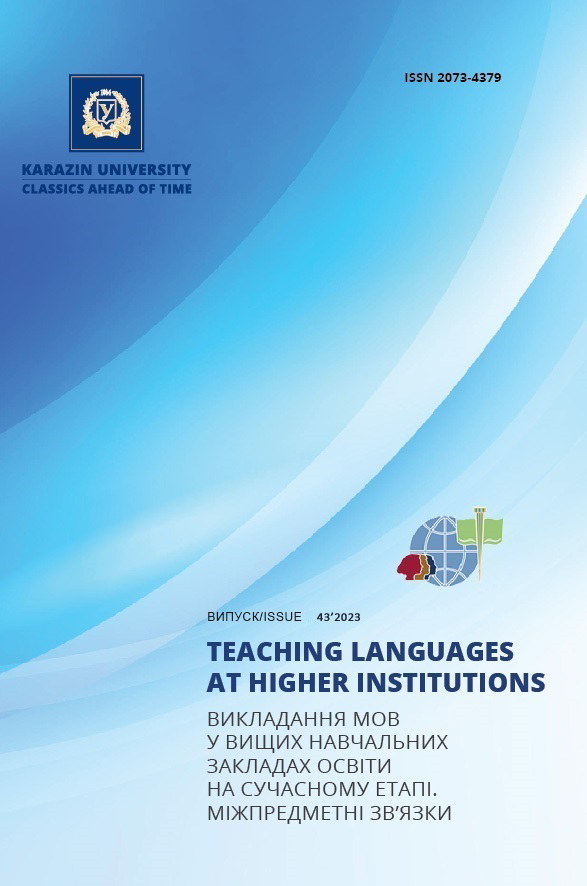Developing oral competence within foreign language acquisition context
Abstract
In the context of contemporary educational priorities and directions, foreign language competence is considered an integral asset for a successful career. In response, educators are tasked with employing effective pedagogical methods and instructional strategies that expedite the acquisition of language skills among their students. Their goal is to facilitate swift language mastery while ensuring the lasting retention of acquired knowledge, enabling its effective application in various communicative contexts.
Concerning the evaluation of the effectiveness of foreign language learning, we emphasize that immersing learners in authentic communication situations greatly enhances productive learning. However, improving oral skills, particularly when encountering intricate psychological and cultural barriers, poses challenges that have yet to receive comprehensive examination.
As criteria for determining the complex ratio of various factors in the speakerʼs communicative interaction with the language material, we propose a method that involves analyzing the gradual development of oral intentions, acts, and sequences. These stages include the initial phase, which entails delineating objectives, tasks, and the extent of communication; the second stage, focusing on the speakerʼs collection of information related to the language context; the third stage, oriented toward clarifying the communicative roles of participants and defining the socio-cultural context; and the fourth stage, where the dialogue seamlessly integrates into the sequence of communicative acts and conversational patterns.
We assert that during the communication process, there arises a need to generate supplementary lexical resources. At this juncture, it is paramount for the teacher to foster the development of a mechanism enabling students to monitor and self-assess their language proficiency. The selected pedagogical methods should be thoughtfully structured to facilitate the transition of knowledge from the realm of comprehension to that of production, ultimately culminating in the capacity to think and articulate thoughts in a foreign language.
Communicative competence in a target language extends beyond the confines of classroom instruction. Therefore, educators should design the learning process in a manner that fosters self-directed skill enhancement and nurtures studentsʼ intrinsic motivation for independent practice.
Downloads
References
Goodwin, C. (1981). Conversational Organization: Interaction between Speakers and Hearers. New York.
Harmer, J. (2007). The Practice of English Language Teaching (4th Edition). (Longman Handbooks for Language Teachers). Pearson Longman ELT.
Schegloff, E.A. (2000). Overlapping talk and the organization of turn-talking for conversation. Language in Society, 29, 1, pp. 1–63.
Selivanova, О.O. (2013). Methodological problems of research of dialog. Odesa Linguistic Journal, 1, pp. 144–158 [in Ukrainian].
Tsymbal, S.V. (2006). Psychological Peculiarities of Future Specialists Professional Competence by Foreign Language Means. Extended abstract of candidateʼs thesis. Khmelnytsky [in Ukrainian].

